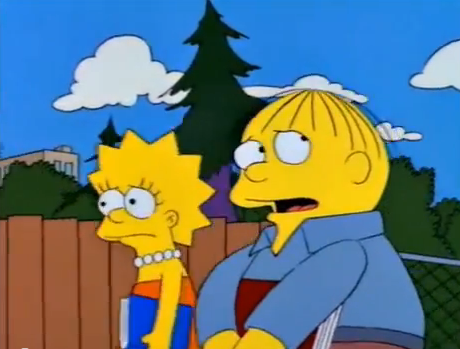Court Rules That Facebook Likes Say Something (and That You Are Saying Something by Liking Stuff)
Facebook "likes" are a form of actual, potentially protected speech


Just as giving a thumbs-up is a form of speech, so is clicking an online button virtually doing the same thing on Facebook. So ruled a court today. Via Ars Technica:
In a unanimous decision on Wednesday, the Fourth Circuit Court of Appeals reversed a lower court's decision, declaring that a Facebook "Like" is protected under the First Amendment, like other forms of speech.
The Virginia case involves a former deputy sheriff in Hampton, Virginia, who claimed that he had been fired for "liking" his boss' rival in a political campaign for county sheriff. In the original lawsuit, a federal district judge tossed the case, saying that a Facebook "Like" was "insufficient speech to merit constitutional protection."
Facebook itself filed an amicus brief in the case, urging the appeals court to reconsider the lower court's decision.
There were actually six plaintiffs in the case (pdf) who said the sheriff (who is also accused of using his office to further his own re-election efforts) refused to reappoint them after he won re-election. The most relevant paragraph of the 81-page ruling, noted by both Ars Technica and legal scholar Eugene Volokh:
On the most basic level, clicking on the "like" button literally causes to be published the statement that the User "likes" something, which is itself a substantive statement. In the context of a political campaign's Facebook page, the meaning that the user approves of the candidacy whose page is being liked is unmistakable. That a user may use a single mouse click to produce that message that he likes the page instead of typing the same message with several individual key strokes is of no constitutional significance.
Volokh explains that though the court ruled a Facebook like counts as speech, it doesn't necessarily mean there can't ever be consequences for for government employees for clicking that thumbs-up:
I say this is "presumptively protected speech," since in the context in which arose — speech by a government employee — the government as employer may sometimes discipline employees based on their speech. But even if the government may sometimes restricting Facebook "likes" this way, the Fourth Circuit decision rejects the argument that Facebook "likes" are just too empty to be covered by the First Amendment at all.
Editor's Note: As of February 29, 2024, commenting privileges on reason.com posts are limited to Reason Plus subscribers. Past commenters are grandfathered in for a temporary period. Subscribe here to preserve your ability to comment. Your Reason Plus subscription also gives you an ad-free version of reason.com, along with full access to the digital edition and archives of Reason magazine. We request that comments be civil and on-topic. We do not moderate or assume any responsibility for comments, which are owned by the readers who post them. Comments do not represent the views of reason.com or Reason Foundation. We reserve the right to delete any comment and ban commenters for any reason at any time. Comments may only be edited within 5 minutes of posting. Report abuses.
Please to post comments


Tip to Facebook users: Other people can see that.
I don't like this.
yea i don't either. It is a double edged sword. If i click on something that likes killing people and someone i know is killed....now i am a suspect....wtf? I just see great cause for this being abused to shut people up and get convictions as saying well he clicked like on this so it shows motive!
Linking to a PDF is not protected speech under any constitution I subscribe to.
People who use facebook deserve to lose their jobs.
Do you feel that way about all social networking systems? What about My [_____] or whatever they're calling it now, LinkedIn, Path, or Orkut?
Basically I just opposed the concept of people having friends.
Facebook friends != real-life friends.
(Trust me)
A man don't need friends, just needs enemies to keep him on his toes.
Green is a terrible color on you, Hugh.
I knew that hair chalk was a bad idea.
Do you feel that way about all social networking systems? What about My [_____] or whatever they're calling it now, LinkedIn, Path, or Orkut?
Yes. Look what Twitter brought Egypt!
And then Saudi Arabia bought Twitter.
This should have been obvious to the lower court. The deputy sheriff was fired because the 'liking' of the opposition candidate was essentially a message powerful enough to get him fired. The lower court was essentially arguing both sides of the coin: That his act was not protected speech, therefore his inflammatory speech was sufficient grounds for his firing.
Do I have that about right?
Of course it's speech. How absurd that anything suggesting otherwise wasn't dismissed out of hand.
Having a "dislike" button would also allow people to say things.
Like
Indifferent
Loathe
"I Will Hunt You Down" button.
That button has been disabled, talk to IT about this.